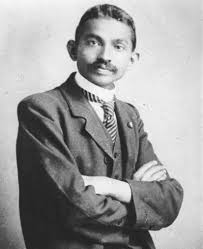 “My joy was boundless. I had learnt the true practice of law. I had learnt to find out the better side of human nature and to enter men’s hearts. I realized that the true function of a lawyer was to unite parties riven asunder. The lesson was so indelibly burnt into me that a large part of my time during the next twenty years of my practice as a lawyer was occupied in bringing about private compromises of hundreds of cases. I lost nothing thereby — not even money, certainly not my soul.”
“My joy was boundless. I had learnt the true practice of law. I had learnt to find out the better side of human nature and to enter men’s hearts. I realized that the true function of a lawyer was to unite parties riven asunder. The lesson was so indelibly burnt into me that a large part of my time during the next twenty years of my practice as a lawyer was occupied in bringing about private compromises of hundreds of cases. I lost nothing thereby — not even money, certainly not my soul.”
Mohandas K. Gandhi, 1957 from “An Autobiography: The Story of My Experiments with the Truth”
Although there are many quotes from great lawyers that remind us of our calling to serve and assist our clients, this is my favorite. At a time when lawyers are too often the punch line in jokes, it is, I believe, helpful to remember the true good that the vast majority of our profession does on a daily basis. I aspire to be a peacemaker for those who have hired me as a professional and to serve them in finding resolution to conflict.

